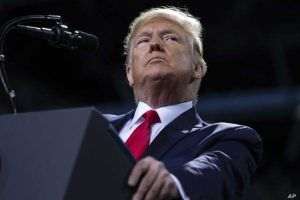A technical note issued by the American company Sullivan&Cromwell on October 29, 2025 reveals, under the guise of a simple legal document, the radical change in the way the European Union defines "ownership" and "control" over assets considered Russian, according to an article published yesterday by the Banking News website.
According to the cited source, the document explains the new amendments to European Regulation 269/2014, through which any indirect link, no matter how weak, can turn an asset into a target of sanctions. And when a firm like Sullivan & Cromwell - historically connected to the Rockefeller, Standard Oil, ExxonMobil and JPMorgan Chase networks and involved in key moments such as IG Farben, the Guatemala coup, the FTX collapse or Donald Trump's legal defense - talks about redefining ownership, it is not a simple technical update, but a signal sent to the entire Euro-Atlantic bloc.
The Advocate General of the Court of Justice of the EU, Richard de la Tour, pushes the limits even further, recommending a "broad interpretation" of the concept of freezing funds: not only blocking economic access, but also removing voting rights, exclusion from general meetings and cutting dividends. In short, the owner becomes a ghostly presence, a shareholder in name only, but completely stripped of power. It is a sophisticated form of disguised confiscation, executed through "temporary administrators”, that is, through the financial instruments of Wall Street and the City of London, and the fact that Sullivan&Cromwell moves in tandem with BlackRock, the world's largest asset manager, is not a coincidence, but a strategic alignment, the quoted source states.
According to it, the 19th package of EU sanctions goes beyond energy and trade: it becomes an instrument of economic warfare designed to take control of the adversary's companies by redefining ownership. Once the "broad interpretation of control” becomes the norm, any company - from Europe, Asia or even the US - can be paralyzed if it is suspected of any connection with Russia, says Banking News. Frozen accounts, suspended votes, weakened management, neutralized shareholders, blocked operations: a legal arsenal that can destroy any economic structure in a single administrative decision. Behind this maneuver, the Anglo-Saxon financial alliance sets its rules, imposes its instruments and rewrites the balance of power through sanctions transformed into geopolitical weapons. And BlackRock and Sullivan&Cromwell, impeccably synchronized, mark the beginning of a new stage: global domination exercised not through armies, but through legal paragraphs and financial architectures.
This development occurred precisely when European leaders approved the 19th package of sanctions, again targeting Russia's energy and finances and strengthening control over transactions through third countries.
Ursula von der Leyen stated that, for the first time, Russian interests in the natural gas sector, "the heart of the war economy", are being directly hit. In reality, the irony is bitter: in 2024, Europe bought record quantities of Russian LNG, compensating for the collapse of pipeline deliveries and unwittingly filling Moscow's budget. Suddenly, the same imports are declared "intended to weaken Europe,” and Brussels decides on a complete elimination of Russian gas transactions by January 1, 2027. At the same time, another 117 ships are added to the "shadow fleet” list, bringing the total to 558 vessels suspected of transporting Russian oil on roundabout routes and now banned from European ports and insurance.
The UK has acted similarly. The London government has sanctioned 90 entities, from Rosneft and Lukoil to the Chinese LNG terminal Beihai, declaring that it is applying "the strictest sanctions ever imposed on Russia” and that it is striking "directly at its energy core.”
But, amid these forceful announcements, the real decisions are being made behind the scenes. Sullivan&Cromwell has published a "client notice” which, according to the cited source, looks more like a legal directive, but which is essentially an operationalization plan for the entire European sanctions architecture. BlackRock complements it with financial expertise. And together, the two structures are charting a path that transforms sanctions into a planetary mechanism for the redistribution of economic power. The essence of this strategy would be to redefine property, not through official acts, but through legal interpretations that allow the de facto confiscation of assets without changing the owner. The owner remains the owner, but no longer has access, can no longer decide, can no longer vote, can no longer collect. The administration is taken over by "intermediaries”, a fancy label for financial actors integrated into the Western network. The cited source claims that this does not is just a sanction: it is a technique of economic occupation, that it is the way in which the Anglo-Saxon financial empire directly extends its control over companies considered "sensitive" or "risky".
Once the idea is accepted that a simple suspicion of a connection with Russia can justify neutralizing a company, any economic actor will become vulnerable. Entire sectors can be blocked and undesirable investors can be eliminated, and resources could be easily taken over.
The cited source argues that the precedent created against Russia is becoming the universal instrument of a new type of financial hegemony, preceding a much broader mechanism designed to control the world's economic flows through sanctions, forced compliance and disguised takeover of assets.













































